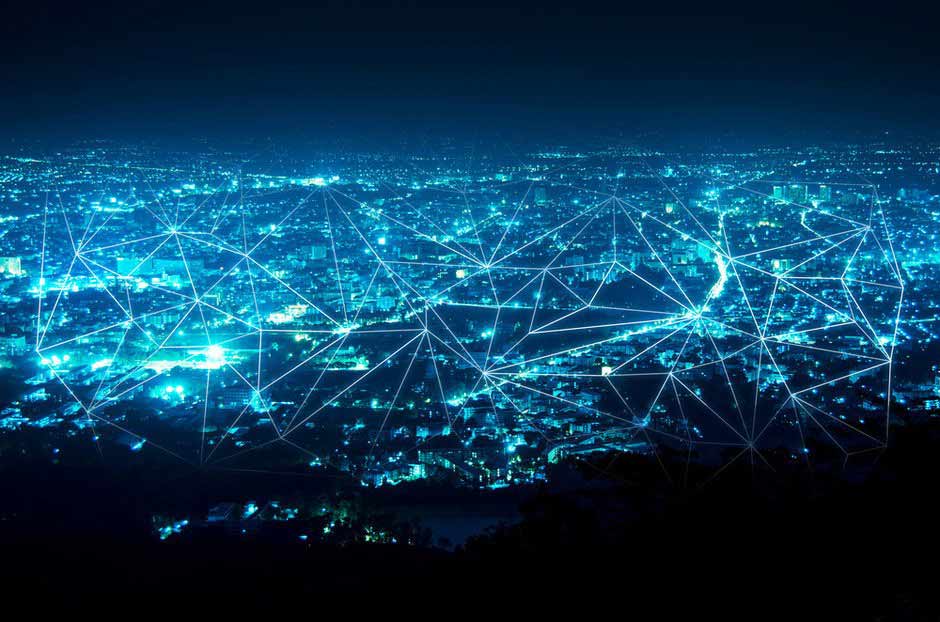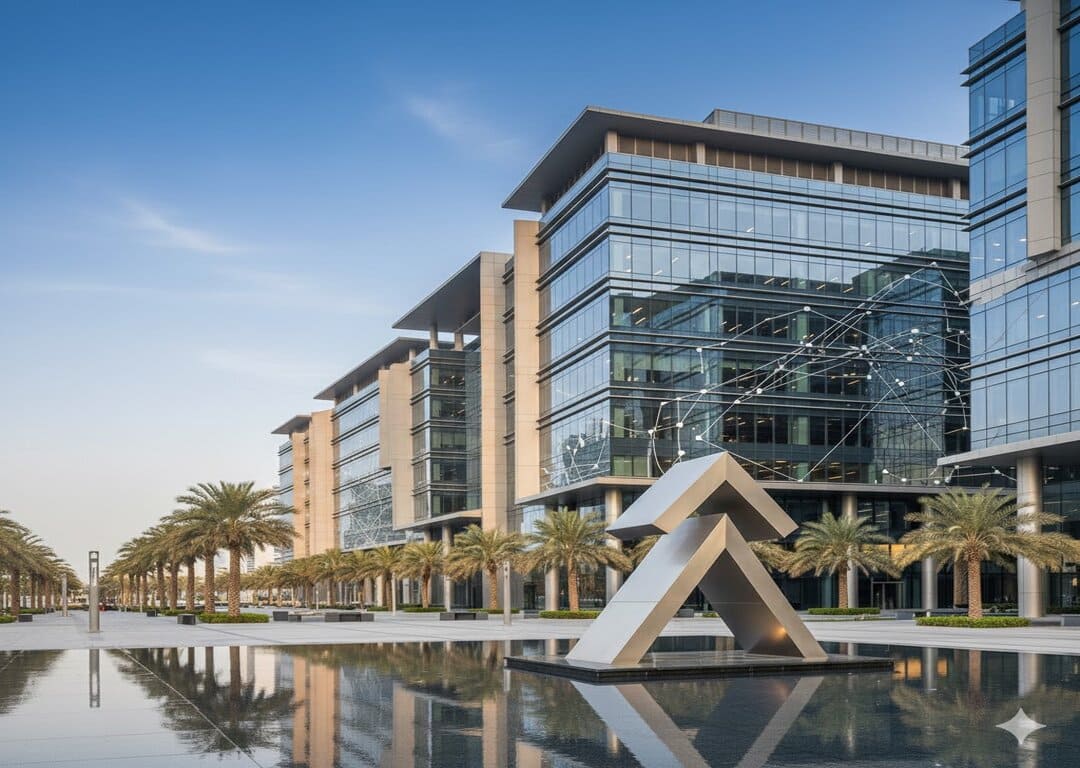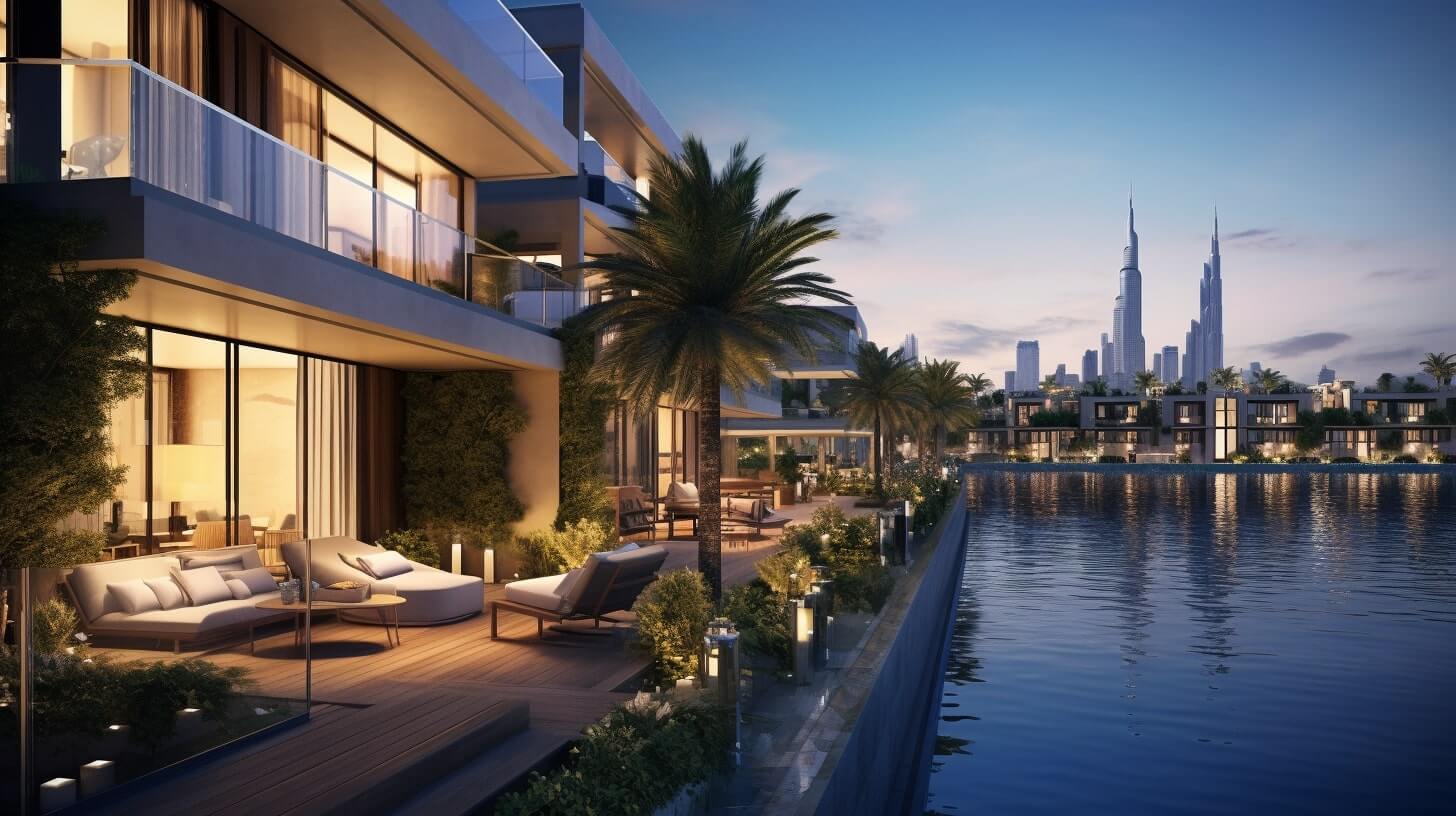What is the DIFC?
The Dubai International Financial Centre, or DIFC, is a leading financial hub in the region for business, fintech, and lifestyle. Setup in 2004, the DIFC has grown to be one of the top 10 onshore financial centres in the world. It brought in a paradigm change in the region, by adopting a Common Law framework, with an independent regulator (DFSA) and an independent English language Common Law judiciary – DIFC Courts.
Since then, the DIFC District has matured into more than just a place to work – it is now a lifestyle destination, with retail outlets, cafes and restaurants, art galleries, residential apartments, public green areas and hotels dotting the landscape.
Why setup in the DIFC?
The Middle East, Africa and Asia (MEASA) markets are typified as young, ambitious, urban and growing in size – quickly. Digital penetration is high, and economies are becoming increasingly diversified and led by innovation. The region’s combined US$ 8 trillion GDP holds huge investment opportunities, and the MEASA region is also home to three billion people – a vast source of human capital. 40% of the population of the MEASA regions is under the age of 25 – which presents in itself a growing consumer base especially for tech-oriented enterprises.
At the centre of the MEASA region lies Dubai, and the DIFC as the leading financial centre in the Middle East.
In fact, the DIFC is one of the only two financial free zones in the UAE. It offers 100% foreign ownership, as opposed to establishing a financial services firm in the Dubai mainland, where only part foreign ownership is permitted.
The MEASA region is the financial services market of the future – as a combined market, MEASA has grown three times faster than developed markets over the past 20 years – and is projected to grow by 4.6% per year over the next five years. The financial services sector has shown a higher-than average growth– up by 7% per year recently, which is 40% higher than the global average.
It is a major contributor to the combined GDP of the region, and is not showing signs of slowing down.
Take for example the massive opportunity in mature and emerging markets to serve the banked and unbanked. In South Asia, only 69% are banked – providing enormous opportunities for traditional and FinTech providers. In the MEA region (excluding the GCC), only 47% are banked – considerable opportunities to tap into a massive population of banked and unbanked.
Fintech investment also grew well, by 66% in the years between 2014-19, compared to a global average of 26%.
The potential for asset management from the DIFC is also promising - Dubai is a top 7 HNWI destination – but 75% of their money is managed and deployed offshore. Studies have shown that bank return on equity in the MEASA region is 50% higher on average than in Europe and the USA, and the average margin on core financial products is 33% higher than the global average.
DIFC currently houses 17 of the top 20 banks in the world, 7 of the top global law firms, 9 of the top 20 wealth and asset management firms and 5 of the top 10 global insurance and reinsurance companies.
The DIFC’s strength comes from its scale – and the thriving community it offers. Its unique lifestyle offering, which includes an outstanding commercial and residential environment, boasts 7 residential towers, 2 5-star hotels, 7 renowned art galleries and 112 retail outlets with another 200 on the way.
Why Dubai?
Dubai is home to over 3 million residents, made up of more than 200 nationalities, all thriving in a city that welcomes over 14.3 million tourists every year. The city is the economic and geographic centre of gravity for markets from London to Singapore, Cape Town to Sydney. Every week, more than 150 flights head to European destinations alone – that’s over 20 a day just to European cities.
14 airlines fly to 25 destinations from Luanda to Casablanca, Tunis, Nairobi, Cairo and every other primary market in between. Dubai has direct connections to 65 destinations via 29 airlines every single day – including places as far apart as Jakarta, Islamabad, Beijing, Taipei, Hong Kong, Kuala Lumpur, Lahore, Bangkok and Tokyo.
Dubai serves more than 180 shipping lanes, while its Jebel Ali port is the 9th biggest in the world. Dubai International Airport is the world’s busiest in terms of passenger numbers. Over 3.5 million tonnes of airfreight moves through Dubai International Airport every year. Dubai’s location and the infrastructure it provides make it the first-choice hub for more than $90 billion of China-Africa trade – while 60% of all of China’s overseas trade passes through the city’s ports.
Dubai is ranked 1st in the world for mobile network coverage and the city’s IOT (internet of things) sector contributes $4.8 billion to its GDP. Moreover, by 2029 100% of the city’s services will be ‘smart’.
Dubai also ranks as the most liveable city in the MENA region with amongst the highest quality of life in the world.
Notable Investments in the region:
1. Careem - Acquired by Uber for $3.1Bn in 2019.
2. Souq.com - Acquired by Amazon for $580 Mn in 2017.
3. Namshi - Acquired by Emaar for $151 Mn in 2017.
4. Talabat - Acquired by Rocket Internet for $169.5 Mn in 2015.
5. Dubizzle - Acquired by OLX for $190 Mn in 2018.
6. Carriage - Acquired by Delivery Hero for $100 Mn in 2017.
7. Property Finder - Closed $142 Mn funding round in 2018.
8. Jumia - Valued at $2.2 Bn after IPO in 2019.
What is the DFSA?
The Dubai Financial Services Authority, or DFSA, regulates all authorised firms, Single Family Offices, DNFBPs and Authorised Individuals. It is the independent regulator of financial services conducted in or from the DIFC.
What is the role of the DFSA?
The DFSA is the independent regulator that authorises and supervises all financial service firms in the DIFC. It administers the various laws that form the legal framework and has powers to enforce these Laws and the associated Rules that apply to all regulated participants within the centre.
In addition to regulating financial and ancillary services, the DFSA is responsible for supervising and enforcing anti-money laundering (AML) and counter-terrorist financing (CTF) requirements applicable in the DIFC.
In fulfilling its mandate as the sole independent financial services regulator for the DIFC, the DFSA performs several functions.
- Policy and Rulemaking.
- Authorisation.
- Recognition.
- Supervision.
- Enforcement.
- International Co-operation.
To summarise, the DFSA:
- has Power to enforce the Law and Rules that apply to all regulated participants within the DIFC;
- Strives to detect and prevent money laundering activities within the DIFC; and
- Works closely with the UAE Central Bank for the prevention of money laundering activities.
What is an Authorised Firm?
An Authorised Firm is an entity that has Financial Service Permissions from the DFSA to conduct financial services from the DIFC.
And what is an Authorised Individual?
They are Individuals who carry out defined Licensed Functions within an Authorised Firm. They are usually linked to an Authorised Firm’s management, and/or the provision of its Financial Services. They are required to meet Fit and Proper criteria and expected to continue to meet Fit and Proper critera throughout the period of being authorised by the DFSA.
The list of Authorised Individuals include the Senior Executive Officer, the Finance Officer, the Compliance officer, the Money laundering reporting officer and the risk officer. There may also be senior managers such as portfolio managers, investment managers and chief technology Officers, who are considered critical to the functioning of the Firm, and hence are authorised by the DFSA by undergoing a process of submission and vetting of their qualifications and experience.
Specific Advantages:
Advantages of Setting up a Business in the DIFC
LEGAL AND REGULATORY FRAMEWORK:
- Legal framework supports cross-border activities.
- 100% foreign ownership permitted.
- No restriction on foreign talent or employees.
- No restrictions on capital repatriation.
TAX BENEFITS:
- Zero tax for 50 years on profits, capital or assets from 2004.
- Zero tax on employee income.
COUNTERPARTY CONFIDENCE:
- Highly regarded, independent regulator.
- Independent, English-speaking, common law judicial system.
- Distinct from the UAE legal system.
- Risk-based regulatory approach.
DIVERSE ECOSYSTEM:
- Central to regional deal making.
- High concentration of international firms, investment funds, wealth management firms, banks, and financial institutions.
- World-class regional and international law and auditing firms, and other professional services.
- The largest fund domicile in the region.
GEOGRAPHIC EPICENTRE:
- Management offices, holding companies and family offices are located closer to the assets they own or manage.
- The Middle East, Africa and South Asia (MEASA) is increasingly the centre of gravity for the global economy.
- Dubai plays a central role in the growing South-South trade, principally between Asia and Africa.
- Well-positioned to harness the potential of emerging markets.
Financial Service Companies
Firms that wish to engage in financial service activities, will find that the DIFC as a jurisdiction brings with it credibility and certainty. The laws and DFSA Regulations are comprehensive, robust, and clear. Prospective clients take comfort in the fact that DIFC-based companies are well regulated. Institutions and market counterparties find it easier to deal with DIFC firms, since they are onshore.
Financial firms that operate in markets around the world can use their DIFC setup to cover the time gap between London and Europe in the West, and Mumbai and Shanghai in the East.
There are over 4,000 firms that currently operate out of the DIFC. This in itself has created a financial ecosystem where firms can engage, discuss and make deals, hold events and conduct business. A strong network of service providers such as consultancies, audit and accounting firms, and corporate service providers further makes DIFC the jurisdiction of choice.
The following financial service activities can be carried out from the DIFC:
- investment banking.
- private banking.
- fund management.
- asset management.
- brokerage and
- investment advisory services.
Read our detailed article on licensing categories within the DIFC here.
The Middle East has seen a flurry of tech-related activity in the recent years. Tech companies are characterized by rapid ideation followed by implementation at an equally rapid pace. Another commonality is that most tech companies start small, and then ramp up quickly upon securing funding. However, managing costs at the onset is critical, especially in the first year, so as to ensure that the tech startup does not fold before it manages to attract its first round of seed/angel investments.
A fledgling tech ecosystem needs good support from all quarters, and here is where the Dubai International Financial Centre has come to play an important part. Recognising the difficulties faced by early-stage technology companies, the DIFC made a lot of changes to create and accommodate a startup ecosystem in its award-winning onshore financial centre.
The DIFC started by attracting financial technology, or Fintech players into its DIFC Fintech Hive, which is an accelerator that has completed multiple cohorts, with over 500 fintech companies. It quickly extended the benefits of a startup license to all kinds of tech startups – fintech, edutech, regtech, and all technology-based startups that wish to cater to the region.
The DIFC Innovation license offers heavily discounted initial and ongoing fees, world-class co-working spaces at low costs, and an ecosystem of fellow technology firms, seed and angel investors, and access to the leading venture capital firms in the region.
Non-financial companies:
The world’s most successful financial centres create a broad base of economic activity. Non-financial firms provide the goods and services that core financial firms require in order to operate effectively. These include business consultancies, law firms, professional service providers and even businesses such as travel agencies and translation services.
Not everything revolves around work however. Professionals look for a holistic lifestyle, and personal services such as tailoring, salons, gymnasiums, retail outlets such as restaurants and coffee bars, and even fine dining options to entertain their clients.
The DIFC also offers a wide range of non-regulated activities, such as corporate offices, regional headquarters, family offices, holding companies and proprietary investment companies. Consultancies, service providers and product providers can also establish in the centre. These entities are not subject to regulation by the DFSA, and are authorised directly by the DIFC Registrar of Companies.
Retail Outlets
DIFC is situated in a prime location in Dubai, next to the iconic World Trade Centre and opposite Emirates Towers, parallel to the arterial road of Dubai - Sheikh Zayed road. Over 22,000 professionals live and work in the DIFC area. This presents a lot of opportunities for retail concepts, both high-end and bespoke. While there already exists a number of fine dining options, tailoring and shopping outlets and cafes, the upcoming Gate Avenue under the DIFC 2.0 master plan will provide a seamless, fully connected year-round walkable destination including an outdoor promenade.
Conclusion:
The DIFC is a premier destination to live and work and brings with it several advantages and efficiencies. Setting up a company in the DIFC allows financial companies to have a base in Dubai and cater to the expanding MENASA market. It also helps service providers to have a presence in the heart of Dubai, and service multinational firms from the world over. And yes, retail concepts are able to get traction by attracting the attention of high-end clientele!
For more details about DIFC Services, Please Contact Us















 CONTACT
CONTACT